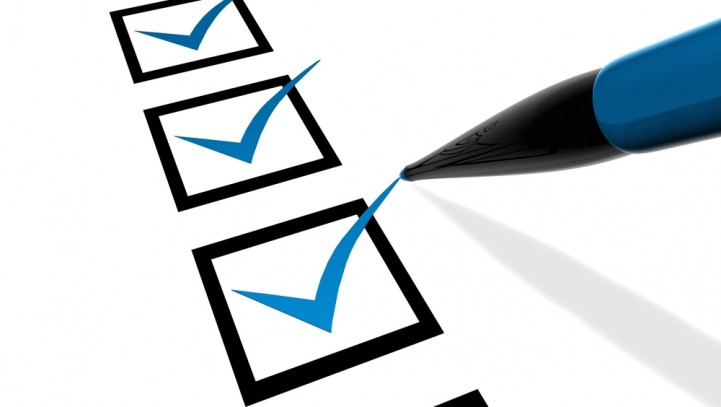
An effective executive needs to be highly productive. Being highly productive not only allows us to accomplish more, but it also lowers feelings of stress and anxiety.
Many executives attempt greater productivity through prioritized lists and calendar management, but I don’t know anyone who’s actually been able to achieve high productivity on a consistent basis using these strategies. It’s not that the strategies don’t work. They do. But without another critical component in place, they’re only of limited usefulness.
Don’t you find it interesting how much more productive we are in the days leading up to a vacation? We plow through the important phone calls that have to be made, respond to all the important emails, and clear our desk of all the paperwork that needs attention. By the time we leave on vacation, everything important has been attended to. Why is that?
The reason we’re able to achieve so much relates to energy management.
The energy I’m referring to has four components to it, and the management of those energy reserves is essential for being highly productive. Our energy reserves are like a four-legged stool. We’re all familiar with the analogy of a three-legged stool. Without all three legs being of equal length, the stool is useless. But with a four-legged stool, even if one of the legs is shorter, it can still be used by exerting a bit of effort and balance. It’s not especially comfortable and requires ongoing expenditure of energy to maintain, but it is functional. The same goes for our four energy reserves. We can function even if one or more of our reserves is depleted, but it’s inefficient, draining, and it negatively impacts our productivity.
These four energy reserves are Physical Energy, Mental Energy, Emotional Energy, and Inspirational Energy. Let me briefly discuss each energy reserve and then offer some strategies to help keep them full.
Physical energy affects our ability to push forward. It helps our drive and our self-discipline. If you’ve ever had a “mid-afternoon crash”, then you’ve experienced the impact a low physical energy can have on productivity.
Mental energy affects our ability to think clearly, to concentrate and focus, to solve problems, and to be creative. Clearly, low mental energy hampers productivity.
Emotional energy impacts our ability to deal with stress, to communicate well, to think clearly, and to interact with others effectively. For example, it’s not uncommon to become short with people when we’re feeling stressed or tense, both of which are caused by low emotional energy.
Inspirational energy is the fuel that moves us to action. It is our passion, purpose, and inspiration that spark self-discipline, extra effort, and new direction. In the absence of inspiration, we end up just going through the motions. Low inspirational energy saps the productive juices out of us.
In order to stay highly productive, it’s essential to develop habits that replenish our energy reserves. There are five strategies that help accomplish this. Some are counter-intuitive and often overlooked, but don’t be fooled by their simplicity. For years they’ve allowed me to accomplish about 50% more than most people do.
High Productivity Strategy #1: Take Breaks
This is the most counter-intuitive of the strategies. After all, how can you become more productive by not working? Here’s why it works…
Most of us have the capacity to stay focused, concentrate well and work hard for about 1.5-2 hours at a time. After that, our focus, accuracy and creativity tend to drop. Ever notice that first thing in the morning you’re able to work quickly, efficiently, and accurately, but as the day wears on, your pace and enthusiasm wane? By taking a 20-30 minute break every 1.5-2 hours or so, you recharge yourself and return to work with the same enthusiasm you had at the beginning of the day.
Take a 20-30 minute break every 1.5-2 hrs.
(The secret to maximizing the impact of those breaks is what you do during them. This is where the second and third strategies for high productivity come into play.)
High Productivity Strategy #2: Eat Strategically
Most people think about what to eat in terms of weight or general health, but nutrition also serves another important purpose.
What and when we eat controls our blood sugar levels. When our blood sugar drops too low, our productivity, focus, and creativity suffer. Remember that mid-afternoon “crash”? It’s due to a drop in blood sugar (often as a consequence of a carb-laden lunch). Eating strategically means eating protein, fat, and some carbohydrate during your breaks. This mix controls the pace at which nutrition is absorbed, which stabilizes your blood sugar level and provides essential nutrients to your brain and your muscles.
Eat strategically throughout the day.
High Productivity Strategy #3: Get Up and Move
During those breaks discussed in Strategy #1, it’s important to get up from your desk and move. Walk around the office, go outside and get some fresh air, run errands, or do chores. Movement helps oxygenate your muscles, your organs, and your brain. It can also help reduce tension and stress, and helps you get refocused.
Do whatever you want during your breaks, but do something.
High Productivity Strategy #4: Release Stress
Being under constant, prolonged and/or high stress undermines our ability to think clearly. We’ve all seen what happens to someone who’s suddenly put under stress. They have a hard time formulating a thought or even completing a sentence.
Therefore, to be highly productive, it is essential to relieve feelings of stress and anxiety. Some people release stress by listening to music. Some enjoy meditating. Others release stress by going to the gym. And still others find that being out in nature helps them decompress.
No matter what you do to relieve stress, it’s just important that you do it.
High Productivity Strategy #5: Get Restful Sleep
Getting a sufficient number of hours of restful sleep allows your body to repair itself and your mind to process ideas and problems. Insufficient or restless sleep will cause a lack of mental sharpness, anxiety, and poor emotional control.
In order to get a restful night’s sleep, avoid caffeine late in the day and avoid eating a heavy, fat-laden, carbohydrate-laden meal late in the evening. Caffeine will keep you from falling asleep quickly and eating a late, heavy meal will cause your body to work hard digesting while you sleep instead of attending to the other tasks necessary for recharging and revitalization.
Eat strategically to ensure a restful night’s sleep.
In summary, managing your energy reserves combined with prioritization of tasks will make you a productivity superstar. Get in the habit of taking breaks every couple of hours, eating strategically throughout the day, getting up and moving, releasing stress, and adopting a lifestyle that allows you to get restful sleep.

